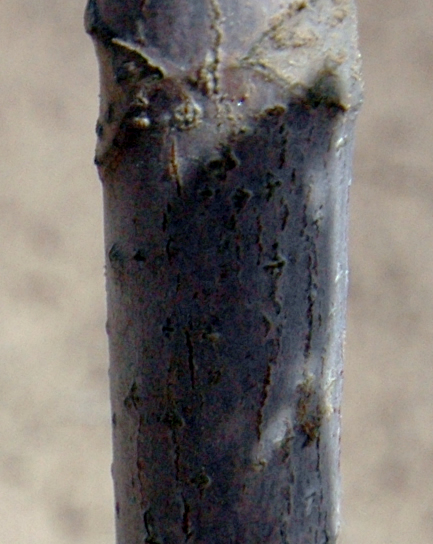
Woody > Aesculus > Aesculus hippocastanum > Aesculus hippocastanum 'Lunar Patches'
Aesculus hippocastanum
'Lunar Patches'
Lunar Patches Horsechestnut
| Family |
| Sapindaceae (Hippocastanaceae) |
| Genus |
| Aesculus |
| Species |
| hippocastanum |
| Cultivar |
| 'Lunar Patches' |
| Category |
| Woody |
| Type |
| Tree (deciduous) |
| Pronunciation |
| USDA Hardiness Zone |
| 3 |
| Canadian Hardiness Zone |
| 1 |
| RHS Hardiness Zone |
| H7 |
| Temperature (°C) |
| -40 - (-35) |
| Temperature (°F) |
| -40 - (-30) |
| Height |
| 25 m |
| Spread |
| 8 m |
Photographs
Description and Growing Information
Flowering Period
| General Description |
| A very tall, wide tree. |
| Landscape |
| Only suitable for very large gardens. |
| Cultivation |
| Grow in full sun or partial shade in deep, fertile, moisture-retentive soil. A. hippocastanum can withstand drier, poorer soil and is more resistant to exposure and pollution. |
| Shape |
| Has a broad, spreading, and domed crown. |
| Pests |
| Extensive leaf blotch (Guignardia aesculi) but does little damage to the tree since it occurs late in the season and hence does not warrant control. Symptoms are irregular brown blotches with light yellow borders, with severe infections causing premature leaf drop. Remove and dispose of all fallen leaves in the autumn, do not compost. Prone to horse chestnut leaf miner ( Cameraria ohridella). |
| Habitat |
| Horticultural origin. |
| Bark/Stem Description |
| Bark is red-brown to dull grey-brown, exfoliating in strips or plates. |
| Flower/Leaf Bud Description |
| Buds are sticky-resinous, to 2.5 x 1.5 cm. |
| Leaf Description |
| 5-7 leaflets to 25 cm, dark green above and yellow-green beneath, turning red to orange in autumn. |
| Flower Description |
| Flowers in pyramidal panicles to 30 cm, with 5 petals to 2 cm in diameter, white with a basal red splotch. |
| Fruit Description |
| Fruit is globose, to 6 cm in diameter, green with soft, sharp spines and 1-3 shiny brown seeds with a large, beige circular patch. |
